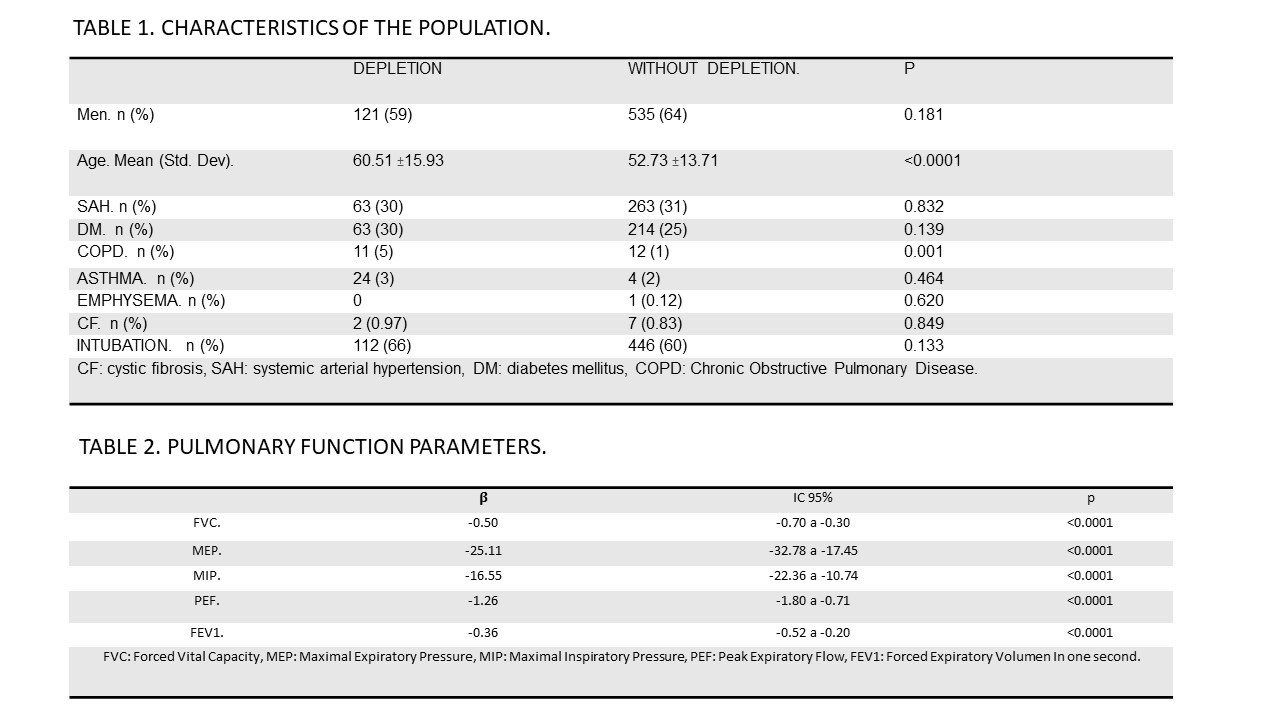Abstract
Background.
Several factors alter lung function: ethnicity, age, height, weight, comorbidities, hospitalizations, a requirement for mechanical ventilation, and nutritional status. Muscle depletion has been associated with worse exercise tolerance, quality of life, and poor prognosis. In the patient with post-COVID-19, there is insufficient evidence about the association between skeletal muscle on lung function (LF).
Objective.
To evaluate the impact of muscle depletion on LF. We hypothesize that patients with skeletal muscle depletion have worse LF.
Methods.
Cross-sectional study, 1,045 patients with post-COVID-19 syndrome who required hospitalization during the acute phase were included. Subjects hospitalized for < to 12 weeks were excluded. LF was assessed by spirometry. Body composition was assessed by bioelectrical impedance. Skeletal muscle depletion (SMD) was defined according to the EWSOP2 Guidelines (appendiceal muscle mass index < 6 kg/m2 in women and 7 kg/m2 in men). A simple linear regression test was performed to determine muscle depletion impact on LF. It was considered statistically significant, p<0.05.
Results.
Subjects with SMD had more age and higher prevalence of COPD. Regarding pulmonary function, subjects with SMD had lower FVC, MEP, MIP, PEF and FEV1.
Conclusions.
SMD in patients with post-COVID-19 is associated with worse LF.
